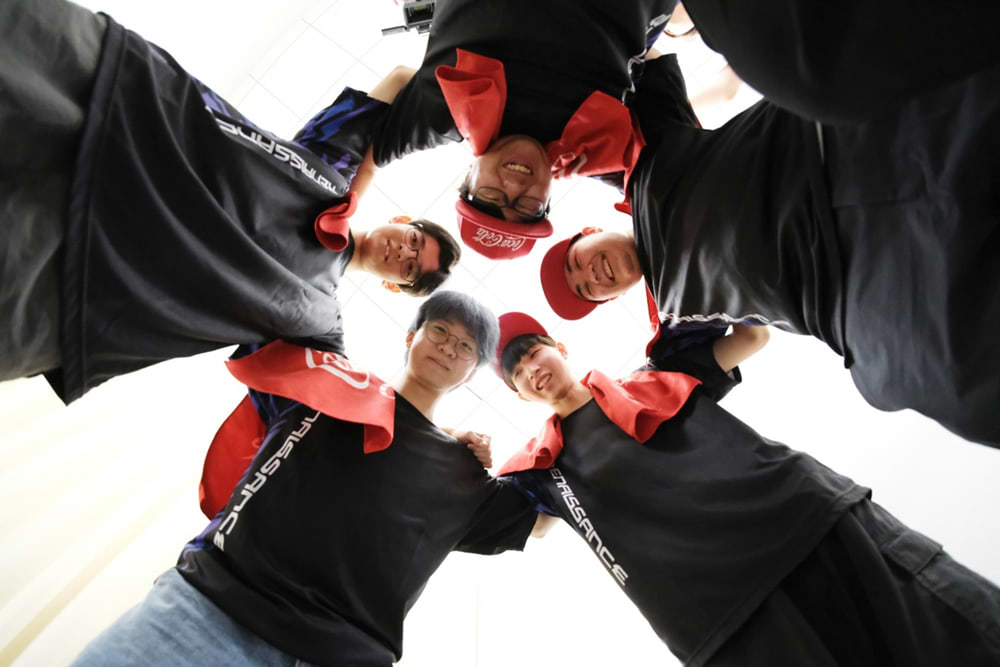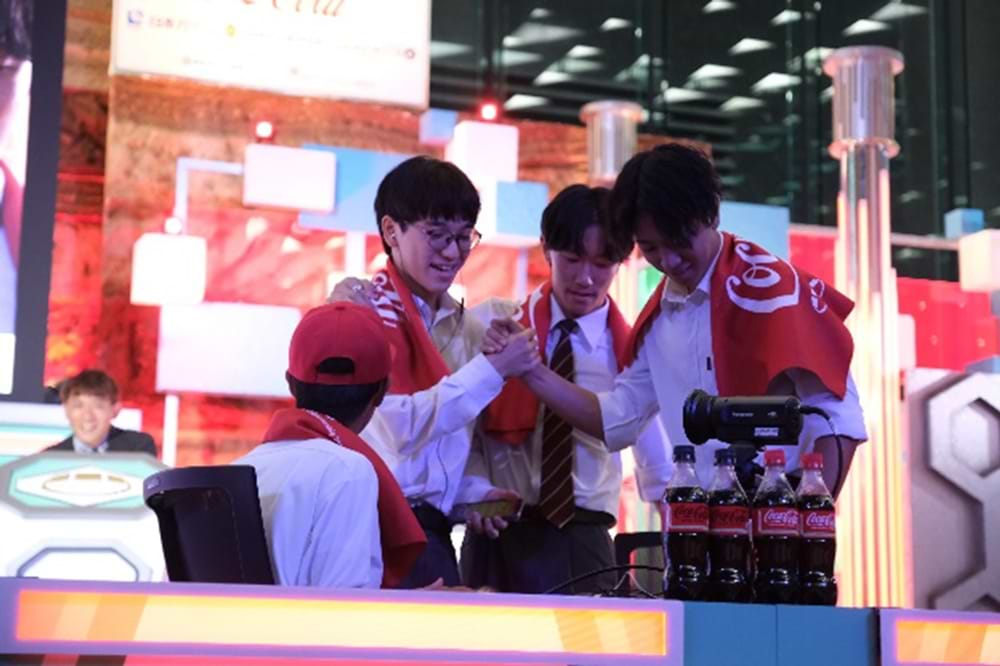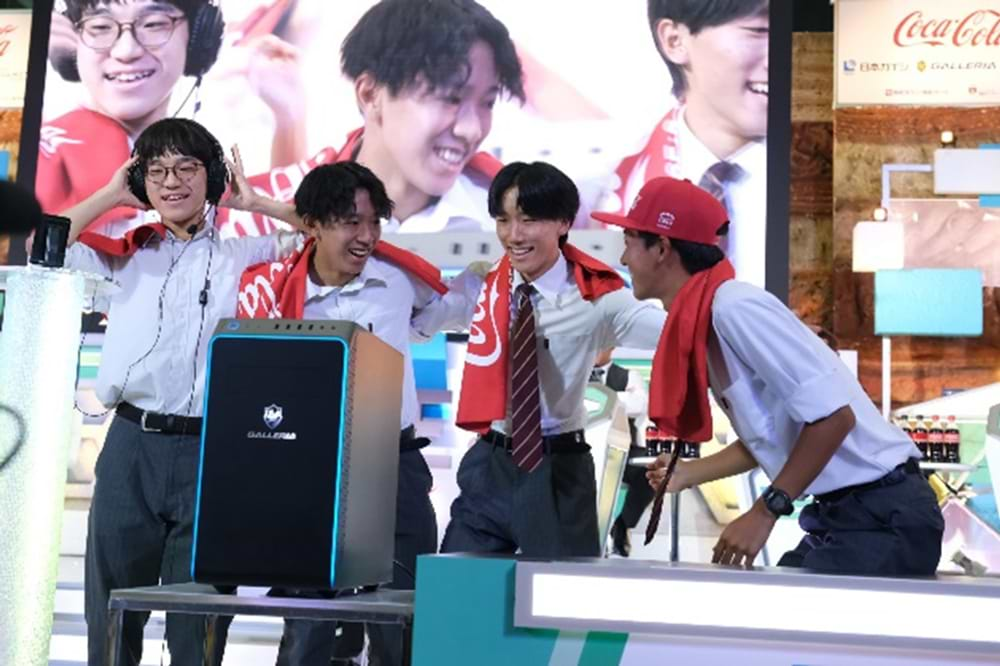STAGE:0, one of Japan’s largest high school esports tournaments, held its first tournament in 2019, and is now marking its seventh year. Dentsu’s esports specialist team is responsible for planning and running the tournament, which has connected the serious challenges facing high school students with society. A total of 13,458 teams and 37,641 high school students have participated to date. As Japan’s esports market expands, STAGE:0 is laying the foundation for it, contributing to the spread of the cheering culture and educational value.
In this article, we will introduce the journey of STAGE:0 from its launch to the sixth tournament, as well as a behind-the-scenes look at how dentsu has implemented the potential of esports in society.
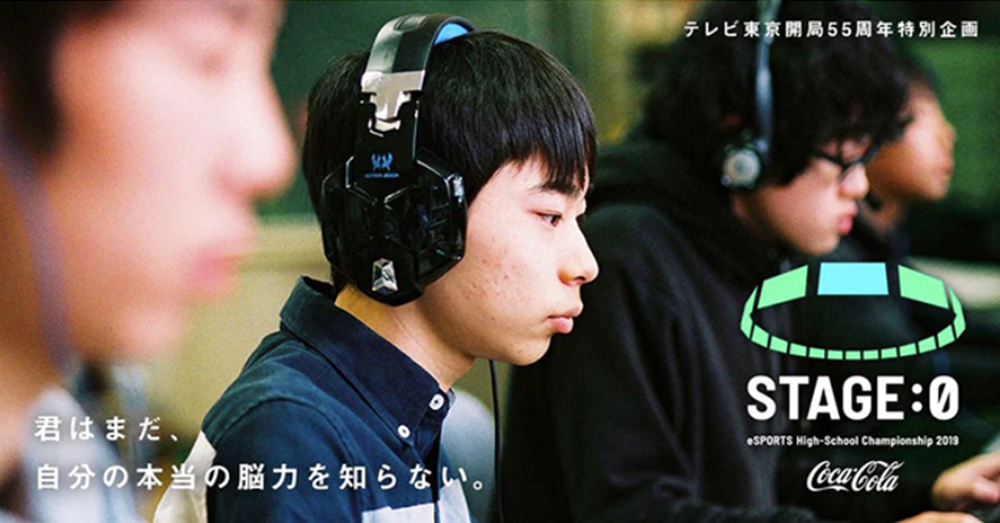
Japan’s esports market lagged behind
In 2018, one year before the establishment of the high school esports tournament STAGE:0, esports was already recognized around the world, but the term itself had not yet spread in Japan, giving the impression that Japan was more than a dozen years behind the rest of the world. The market size in Japan was only around 2% of the world market, and there were very few Japanese players who were active on the global stage.
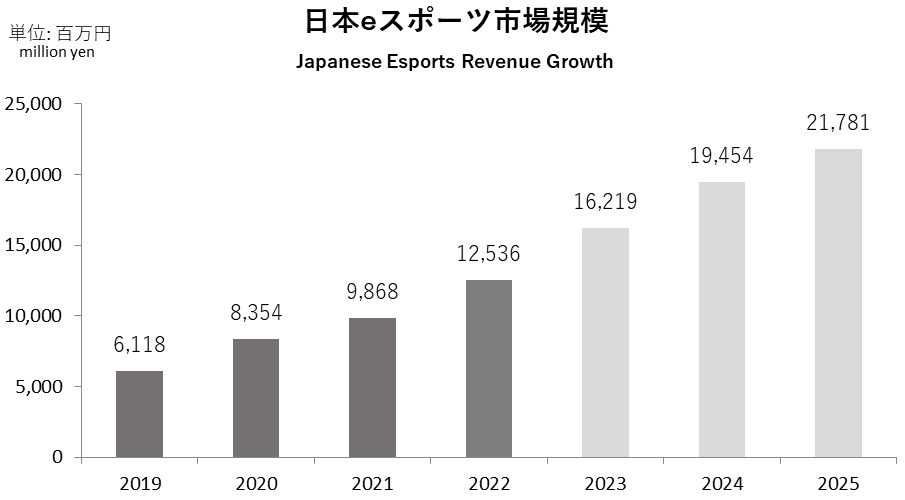
The reason for this is the unique gaming market in Japan. Online games have evolved around the world as independent developers freely created games, new genres of competitive games were being created one after the other, and people shared, played, and connected online. In Japan, on the other hand, online games did not become widespread because the country had developed its own successful video game consoles and strongly protected intellectual property rights.
Believing that the era of esports is coming, dentsu’s esports specialist team began laying the groundwork
Members of the Entertainment Business Center, which handles dentsu’s content business, were convinced that the era of esports would come to Japan, and began promoting esports with the launch of the Japan eSports Union (JeSU).
The first thing they did was launch an esports program on prime-time terrestrial TV together with members of a radio and television station. Until then, games-related programs had been limited to late-night slots, but they decided to develop content in which celebrities play games, creating a variety show that entertains viewers during the period of time when families are watching TV. The aim was to make esports more approachable and familiar to society.
Moreover, they felt that in order to establish esports as “a sport” like other sports, amateur tournaments were necessary. In Japan, there is a deep-rooted culture of supporting student sports, such as the two annual Koshien high school baseball tournaments, high school football, and the Hakone Ekiden, a two-day university relay race. By supporting local schools and players, it would make it possible to involve not only the competitors themselves but also the people around them. With this in mind, dentsu began planning the “STAGE:0 High School Esports Tournament” in October 2018.
From idea to reality in just six months: an unprecedented tournament took shape
To make the tournament a reality, the cooperation of many stakeholders, including external partners and sponsors, was essential. To gain their cooperation, dentsu’s STAGE:0 in-house team first began by conveying how enthusiastically supported esports is around the world.
For example, at the esports tournament held under the auspices of the 2018 Winter Olympic Games in Pyeongchang, South Korea, a female player from Canada won, symbolizing the fact that esports is a sport in which people of all genders can compete on an equal footing. It was also impressive to see that at events featuring South Korea’s top esports teams, the players were treated like stars, with many fans gathering around them. Furthermore, the importance of teamwork was emphasized throughout the tournament, with many instances of victory achieved not only through individual skill, but also through cooperation with teammates.
Dentsu’s esports specialist team recorded each of these scenes on video and used them as material to promote the potential of esports. They also made multiple enthusiastic presentations to outside parties to gain support for the launch of the tournament.
They formed an executive committee together with TV Tokyo, an external partner that shared the vision of this initiative, and with whom they also launched their esports TV program. For regional tournaments, local broadcasting stations and newspapers participated as partners. They also reached out to high schools and boards of education through phone calls and in-person visits, helping to raise awareness of the tournament and recruiting participants.
Then, in April 2019, the team started accepting entries for the first STAGE:0 tournament. It took just six months from October 2018, when planning first began, to get the tournament off the ground. They were able to achieve this speed thanks to the support of external partners and supporting companies, who shared the team’s desire to believe in the potential of esports and seriously create a tournament for high school students.
STAGE:0 connected high school students involved in esports with society even during the COVID-19 pandemic
4,716 high school students participated in the first STAGE:0 tournament held in 2019. The event was a huge success right from the start, with a much bigger response than expected.
The tournament management team was convinced that this could be expanded even further, and just as they were planning to scale up the event for the second tournament, the COVID-19 pandemic began in 2020.
With the declaration of a state of emergency making it difficult to hold events, the tournament itself was in jeopardy. The high school students were unable to attend school or meet with their friends, and spent their days feeling lonely. It was in this situation that the tournament management team thought, “There is something that esports can do right now.” They wanted to provide a place where people could connect with their friends and get engrossed no matter where they were. With that thought in mind, the tournament management team decided to continue the tournament.
The COVID-19 pandemic completely changed people’s lives, and had a major impact on the culture of esports. Viewing on video streaming sites increased dramatically, and game streaming suddenly became commonplace. Streamers, or people who broadcast content, began to gain popularity as influencers, and games evolved from a “game” to a “culture.”
The second STAGE:0 tournament was held entirely online. The appeal of esports is that players and spectators can participate regardless of location. The number of participants increased to 5,555, exceeding the previous year, and the matches were made available for free on a video streaming site. The total number of views exceeded 7.96 million, and even though it was online, the voices of support for teammates and encouragement from family and friends were clearly heard through the screen.
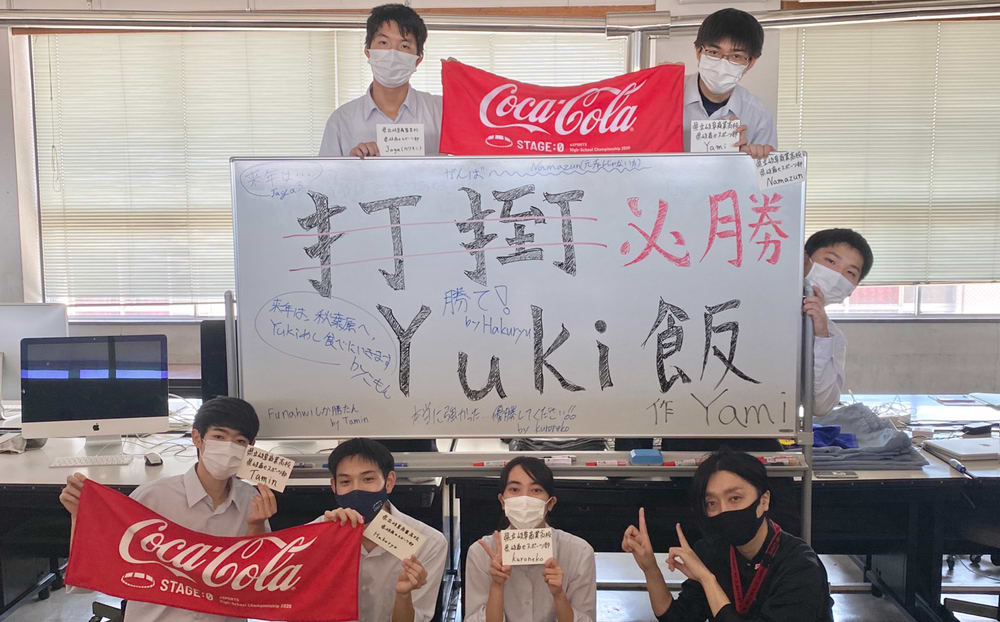
The third tournament in 2021 was also held online, and the fourth and fifth tournaments were held in a hybrid format, combining in-person and online events. Even amid the ongoing COVID-19 pandemic, the number of participants increased year by year, and STAGE:0 established a solid presence as a place for high school students to compete seriously and as a platform that connects people who love esports.
Then in 2024, after the long COVID-19 pandemic, the tournament finally returned to a fully live event. The sixth tournament was held as part of TV Tokyo’s 60th anniversary celebrations, and saw the participation of a record 7,692 players and more than 2,300 teams. In addition to being broadcast on television, the event was also streamed on digital platforms, garnering approximately 14 million views. It has grown into one of Japan’s largest high school esports tournaments.
Esports brings people together and helps students grow
Dentsu’s tournament management team wanted to make STAGE:0 not just an esports tournament, but to develop it into a platform that connects not only the participating high school students, but also their families, friends, and the local community. For example, they set aside time during the broadcast to introduce messages of support, and showed not only the players playing the games, but also the people cheering them on. This was designed to broaden empathy for and interest in the tournament among people who do not play games.
These efforts are gradually showing results, and the family of one player told us, “We were worried because he just played games all the time, but when we saw him compete with his teammates in the tournament, we could see the effort he had put in and it brought tears to our eyes.”
We have also heard stories of high school students who were anxious about going to school and interacting with others, but who have changed for the better after joining the esports club and participating in team activities.
Furthermore, one player saw a live broadcast of STAGE:0 when he was an elementary school student, dreamed of one day competing in the tournament himself, and then made that dream come true after entering high school. Comments like this are a great encouragement for the management team that has kept tournament going, and it is a moment when they realize “We’re glad we kept it going.”
The tournament management team sees these changes in each individual as having “social significance,” and plans and runs the tournament not only as a place for players to grow, but also as a way for them to connect with the people around them.
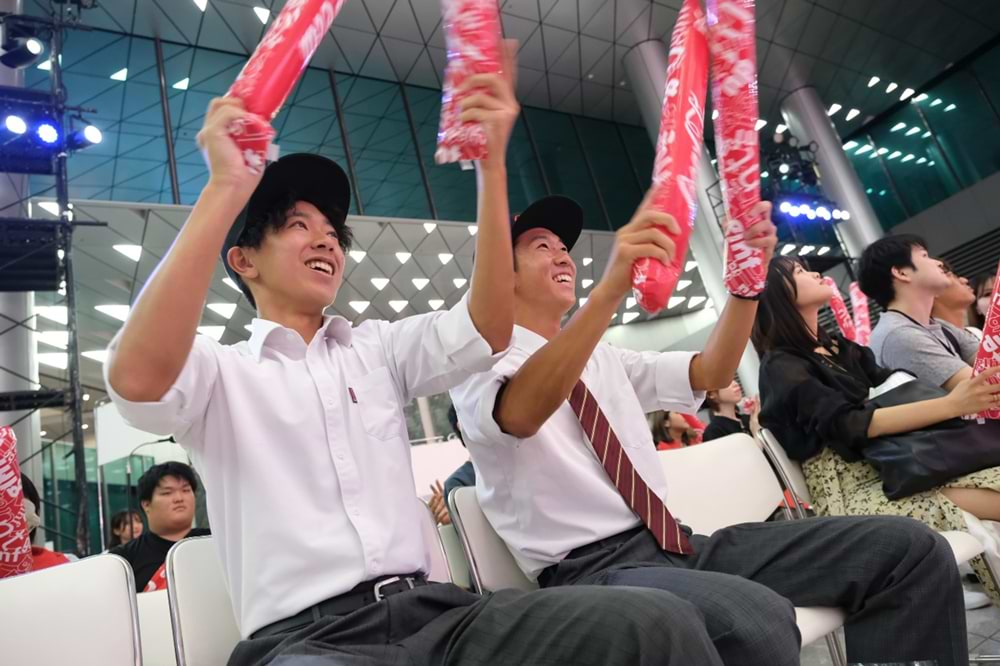
Working toward a system that supports the future of esports—the challenges of dentsu’s esports specialist team going forward
Japan’s esports market was worth approximately 6.1 billion yen in 2018 when STAGE:0 began, but it has now expanded to around 20 billion yen. The annual growth rate is 25–30%, and the market continues to grow at a rate that exceeds the global average. In Japan, the culture of enjoying games has always been deeply rooted, and the large number of people who find value in games and are willing to invest in them is also driving this growth.
STAGE:0 is an open tournament in which anyone who plays games can participate, and we have always valued its low barrier to entry. The team hopes to continue taking advantage of this characteristic and provide an opportunity for more high school students to take on new challenges.
Furthermore, they are also considering ways to build stronger connections with the professional scene in the future. The team is looking at mechanisms to create pathways for STAGE:0 champions to engage with pro gamers —for example, by giving them the chance to compete on the same stage as professional esports players and influencers, and by providing a platform where they can showcase their skills to scouts.
From the very first event, STAGE:0 has adopted the format of “a school competition” and has always placed importance on the competitive nature of teamwork. Like other sports, esports is not just about individual skill, but also about teamwork to determine victory or defeat. Practice with your team, shed tears of joy after victory, and cry over a defeat—the tournament management team feels that the best part of this tournament is seeing the players grow as people through such experiences.
Dentsu’s esports specialist team plans to continue spreading the appeal of esports as a team competition and expand opportunities for growth through esports. By taking advantage of esports‘ unique feature that “anyone can compete on the same footing,” they hope to bring the joy of playing together to many people , across borders and all kinds of barriers.
